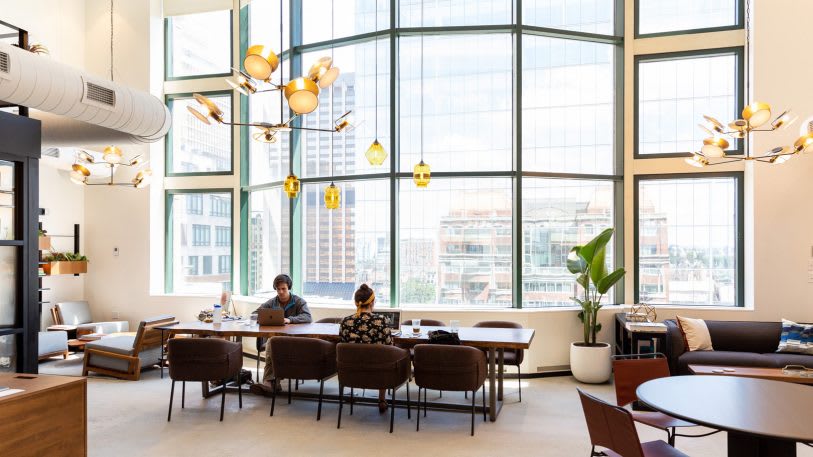At malls across America, amid Gucci, Saint Laurent, and Neiman Marcus storefronts, shoppers maybe surprised by something new: co-working. Industrious, a co-working company and custom office purveyor, is setting up shop at Short Hills mall in New Jersey Mall and Broadway Plaza in Walnut Creek, California.
Already the company has secured 40,000 square feet at a former Barney’s inside the Scottsdale, Arizona mall, Fashion Square. The new offices in New Jersey and California bring the number of suburban locations to six. Jamie Hodari, CEO of Industrious, says the Scottsdale location, which launched in February, has proven to be highly sought after.
“We underwrote it to take… I think nine months to get to 90% occupancy and it looks like it’s going to get there in two months,” he says. “It actually makes it the highest-performing unit of our last 25 launches.”
Industrious is not the only company eyeing the suburbs. “We’re getting approached to go into more traditional suburban retail,” Darin Harris, North American CEO for global co-working giant IWG, told Fast Company last fall. His company’s luxury co-working brand No. 18 will open up an office in Atlanta’s Buckhead shops later this year. Harris says he thinks co-working is primed to move into even more unlikely spaces, like airports.
Amy Nelson, cofounder of the Riveter, a co-working space built around women’s needs, got its start in big cities like Seattle and Los Angeles, and is exploring up-and-coming cities in Texas, Colorado, Arizona, and Minnesota, rather than just big metros. “We have every intention to build 100 locations around the country,” Nelson says.
Smaller outfits have found a niche in the suburbs too. A bootstrapped company called HudCo with a focus on wellness recently opened a nearly 9,000-square-foot co-working space in Dobbs Ferry, New York this year. Serendipity Labs, which has 34 locations in the U.S., has long focused on the suburbs.
The reason for the push into more tree-lined locales has much to do with where companies and their employees want to be. “There are more big companies in suburban locations,” says Hodari. He says he’s seeing demand for custom workspaces for teams of 20 and above. In some cases, businesses with corporate headquarters in big cities are setting up small satellite offices in nearby regions to make it easier for workers to commute.



